COVID – 19 STRATEGIES

Quarantine COVID – 19 STRATEGIES
to stay Healthy and remain Sane while confined at Home with your Family and Pets.

Introduction:
In this notebook, you will find 19 areas and strategies to stay healthy and sane while confined at home with your family (adults, children, elderly, and pets) during the COVID-19 Quarantine.
Keep in mind that due to the current circumstances, it is reasonable to feel negative, frustrated, have negative thoughts, and react more negatively than usual. The challenge is to forgive yourself, change your perception to focus on the things that you can control, and find strategies to help you overcome the obstacles you face. Clients who have worked with us reported that these are critical factors that helped them gain momentum in the process of becoming more mentally strong, healthier, happier, and successful.
We trust that you will find the information and strategies included in this notebook useful. As this is a work in progress, should you want to share resources and contacts for your country, ideas, or strategies that work for you and your family, you may contact Rolo Mental Coaching at info@rolomentalcoaching.com
Note: Interested in signing up for a Free 30-minute Consult with Cristina Rolo, Ph.D., CMPC or Dave de Haan, B.A., subscribing to the Rolo Mental Coaching newsletter, receiving Performance Enhancement information, events, and resources, contact us at info@rolomentalcoaching.com or visit www.rolomentalcoaching.com
Be safe!

Table of Contents:
1 – Hygiene
2 – Nutrition, Hydration & Supplements
3 – Exercise
4 – Thankfulness
5 – Mindfulness
6 – Communication
7 – Family Fun
8 – Problem Solving
8 – Love & patience
9 – Meditation
10 – Time management
11 – Be of service
12 – Elderly Care
13 – Homeschooling
14 – Screen-time
15 – TV exposure
16 – Online-shopping
17 – Pets
18 – Daily Routines
19 – Plan your future
COVID-19 Resources and Contacts in Portugal and International

Hygiene:
- Use a tissue every time you cough or sneeze, immediately throw it in the trash and wash your hands thoroughly.
- Clean door handles, faucets, surfaces, and floor regularly. Vacuum often to keep the air cleaner. Open the windows on a sunny day to air out.
- When you go outdoors, wear a mask and gloves. When you return home, leave your shoes outside and wash all your clothes at a minimum of 60 degrees.


Nutrition, Hydration & Supplements:
- Drink plenty of fluids during the day.
- Start the day drinking a glass of water and drink also one before going to bed.
- Drink plenty of tea (e.g., elderberry flower, ginger, pollen, and honey), healthy smoothies, juices, or milk.
- Increase your Vitamin C intake by drinking juices (e.g., orange or lemon) or by taking vitamin C supplements.
- Eat healthy meals with plenty of antioxidants, prebiotics, and probiotics to boost your immune system.
- Plan weekly meals. Have your family members participate in choosing the recipes and in making them.
- Should you be walking or exercising less than before, consider adjusting the portions of your meals.
- If you have challenges with weight gain, consider drinking water when you first feel the hungry sensation to delay the food intake temporarily.
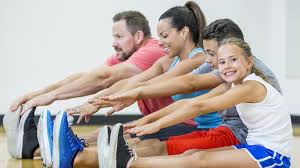
Exercise:
- Include in your daily routine 10 minutes of family exercise and stretching
- (e.g., when you come out of bed, before working or studying, or before going to bed).
- To make family exercising more appealing, give leadership momentarily to each member of the family, letting them chose and execute a specific exercise that the family members copy.
- You can also get creative and compose a family dance choreography in which every family member contributes each day with a particular move.
- There are many Apps available to help you exercise and stay fit during the COVID-19 Quarantine period (e.g., Nike Training Club, HIIT Workouts). You may search for others online.

Thankfulness:
- Start your day doing the “Gratitude” activity: mention 3 things you are thankful for.
- At the end of the day do the “Sandwich” activity:
- a) Mention one good thing you are thankful for during this day,
- b) followed by one aspect that could have been better and how, and
- c) finalizing with another positive aspect that you are grateful for.
Note: You can do these exercises alone or as a family activity.
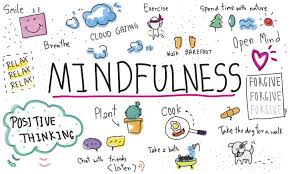
Mindfulness:
- Whenever possible, manage your schedule in a way that you can do the necessary tasks and still have quality time (even if just 15 minutes a day) of mindful attention to each of your family members. Remember to reserve some “ME” time to rest or do something you love to re-charge your energy.

Communication:
- Create a clear and written set of guidelines for the Quarantine period, so every family member knows what is expected from each individual.
- Have all members participate in conceiving the document and have them sign it to increase compliance.
- Display the document in a visible place, in which you can see and read it daily.
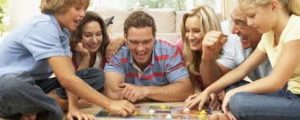
Family Fun:
- Whenever possible, watch with your family funny videos or comedy movies to laugh, as it boosts your immune system.
- Play daily Family Games: e.g. Monopoly, Rummikub, Mikado, Uno, Skip-Bo, PassaODesenho, Domino.
- Do family activities: e.g.“Brain Training”, Role Play, Origami
- Learn a new language: e.g. “Duolingo.”
- Do regularly indoor activities that your family members like doing. If there are different interests, make sure every day you do something new to accommodate everybody’s wishes.

Problem Solving:
- We are all living in challenging times. We face daily obstacles that test our patience, adaptation, and problem-solving capacities.
- To be able to move forward and be successful, it is essential to see the situations from a perspective of creative possibilities and possible solutions, instead of being stuck focusing on the obstacles and the inherent negative impact (e.g., frustration, helplessness).
- By focusing on factors under your control. (e.g., staying at home, eating healthy, exercising, etc.) you maintain a sense of control that will fuel your actions towards fulfilling your goals.
- In sum, it is essential to stay positive, flexible, adaptable, creative, patient, creative in solving problems, focusing on solutions, and on what is under our control.

Love & Patience:
- If your loved ones are healthy, hug them daily, as it boosts the immune system.
- If you are not able to have direct contact with your loved ones, communicate with them often using written messages, letters, or online technology.
- Be patient with your loved ones, especially children and the elderly.
- When they make a mistake or something that you are not pleased with, find a strategy to avoid yelling and reacting negatively. Calmly address the issue and provide consequences or solutions.
- You may use the SBIS model to openly and clearly communicate to the target individual the following:
Situation – describe the situation objectively.
Behavior – describe the specific action that triggered the situation.
Impact – describe the effect that the specific behavior had on you and your feelings
Solution – brainstorm and define solutions to prevent the negative situation and behavior from happening in the future.

Meditation:
- Start and end the day listening to Meditation music and Alpha Waves that stimulate your inner balance, gratitude, and health.
- There are many Apps available to help you meditate and relax during the Covid-19 Quarantine period (e.g., Synctuition). You can research others online.

Time management:
- Create a Schedule with specific tasks you want to accomplish during the week.
- Make a To-Do list in which you indicate the priority tasks (A) and secondary tasks (B), as well as the tasks that can be postponed (C).
There are many templates available online for schedules and to-do lists. Choose one that you consider adequate.

Be of Service to Others:
- You may call some elderly (athletes, coaches, etc.) who are in isolation and may benefit from dialoguing with you.
- Or perhaps contact a health professional to hear their feelings and struggles, and provide them the necessary support.
- It may also be beneficial to contact somebody from your past who made a positive impact in your life, and show how thankful you are and why.
- By being of service, you will create and get back a wave of positive energy that will boost your immune system.
- Regularly ask how you can be of service, especially to the ones that are more isolated or need more support.

Elderly Care:
- Assist the elderly under your care to be autonomous in all tasks they are able to.
- Praise the elderly for what they do right.
- Accept the elderly assistance in tasks they can contribute, for them to feel useful.
- If you all are healthy give them smiles, kisses and hugs, as these boost the immune system.

Homeschooling:
- Create, implement, and supervise children’s school routines.
- Create a schedule and a “Progress Log” to monitor the online school as well as the written work done on the adopted manuals.
- Ask the children to create a “Questions & Clarification Log” with the aspects they would like assistance with, which they later can share with the parents, or teachers for clarification.
- When possible, have siblings assist each other.
- Whenever there is a Wi-Fi network overload, or no network connection, instead of being frustrated, focus on the written work you can do on the school adopted manuals.
- Because in Portugal, not every family has computers or Internet access, the Portuguese government created a resource called “Telescola” This is a TV-based Education program to reach students from 1st to 9th grades. The “EstudoEmCasa” is on the RTP Canal Memória, and the schedule of the TV programs for each grade is presented in the table below.
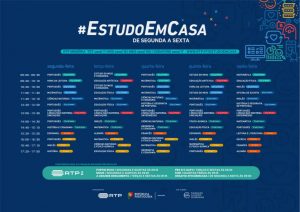
rtp.pt/estudoemcasa

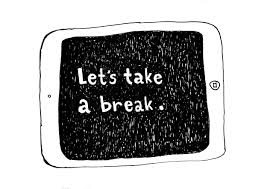
Screen-time:
- Limit Children’s screen time to 1 hour a day. Online school and school-related projects are not included in this 1 hour allotted time.
- Create a routine in which the children are responsible for setting the 1-hour timer right before they start their leisure screen time. This prevents them from being distracted and ended up being several hours in front of the screen.
- This procedure also avoids having the parents always worried and distracted with screen-time supervision.
- You may create other related rules according to the needs (e.g., when children do not set the 1-hour timer, as a consequence, they lose the 1-hour privilege for the next day).
- You may also create and implement reward systems to stimulate your children to collaborate in household tasks. For example, you may pre-establish with them a table of tasks and respective credits earn, which can be converted in screen-time minutes. Make sure they create a daily log to keep track of the credits (e.g., screen-time minutes collected).

TV exposure:
- Limit the TV news exposure (and other media) to 1 hour a day.
- Filter the information, so the elderly and children focus on the strategies and positive developments, assisting them to overcome misconceptions and fear.

Pets:
- If you have pets, make sure you allocate at least 5 to 10 minutes a day to give it attention or play with.

Online shopping:
- Order online in advance, as delivery time may take a couple of weeks.
- When the groceries are delivered, leave the boxes and bags outside of your house, and disinfect the surface of the packages and items you buy before you store them.
- After this procedure, immediately wash your clothes above 60 degrees and take a shower.

Daily Routines:
- Adjust your daily routines and add new ones as necessary.
(e.g., Measure every family member’s temperature daily and keep a log; do the “hold the breath” test for 10 seconds with the family; exercise daily; eat in moderation; etc.).

Future Plans:
- Adapt your business to fulfill the current consumer needs. Be creative.
- Spend some time thinking of alternative ways for future income.
- Visualize yourself, your family, and friends soon going to places you like and doing things you love outdoors.
We trust that you will find the information and strategies included in this notebook useful. As this is a work in progress, should you want to share resources and contacts for your country, ideas, or strategies that work for you and your family, you may contact Rolo Mental Coaching: info@rolomentalcoaching.com 
Should you need additional support, sign up for a Free 30-minute Consult with Rolo Mental Coaching (RMC) High-Performance Coaches www.rolomentalcoaching.com
Be safe!

COVID-19 RESOURCES & CONTACTS:
On this page, you have a list of official contacts relative to COVID-19, available resources and support in Portugal, and several other countries.
Portugal:
Direção Geral de Saúde (DGS) platform for COVID-19 related inquiry.
https://covid19.min-saude.pt
International :
For additional international Covid-19 resources, information, and contacts click the links below:
http://appliedsportpsych.org/site/assets/documents/International-COVID-19-Resources.pdf
The international COVID-19 list of resources and contacts was created by several members of the Association for Applied Sport Psychology, including Cristina Rolo, Ph.D., CMPC, a member of the AASP International Relations Committee.

Note: Interested to sign up for a Free 30-minute Consult with Rolo Mental Coaching (RMC) High-Performance Coaches, subscribe to the RMC newsletter, receive Performance Enhancement information, events, and resources, contact us at info@rolomentalcoaching.com or visit www.rolomentalcoaching.com

